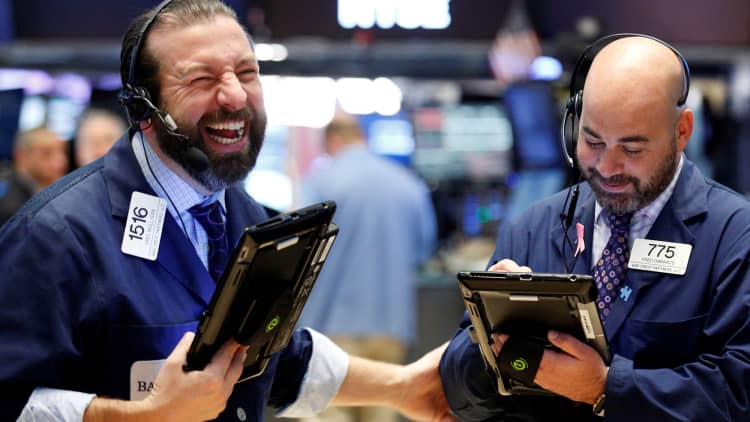
Secession attempts are cropping up around the world, but financial markets appear to be shrugging off the risk.
"There are independence movements all across the globe that are really starting to create some fracture, from Kirkuk to Catalonia to the U.K.," said Boris Schlossberg, managing director of foreign exchange strategy at BK Asset Management.
In Iraq, government forces seized areas in and around Kirkuk, the oil-rich city, overnight Sunday. The Kurdish people of the region voted for independence last month and have faced opposition for their efforts. Crude oil rose in Monday trading, and energy-related stocks were largely unchanged.
Early on Monday, the Spanish government gave Catalonian leadership three days to declare whether it will try to secede from Spain and claim independence.
Meanwhile, the United Kingdom's Brexit movement has been underway for more than a year as the U.K. has sought independence from the European Union. Recently, Brexit negotiators said talks between the U.K. and the European Union had stalled in a "deadlock," which caused sterling prices to drop against the dollar.
Though all these political situations carry a risk of "spinning out," Schlossberg said Monday on CNBC's "Trading Nation," current risk of outright secession seems rather benign across the board due to their heavy economic involvement with their respective surrounding regions.
Each of these areas "is so economically tied to the region around it that the full independence is really not in the cards, and the markets are basically discounting all of this posturing that's going on in the world because the economics of the deals are just too important to be able to fracture," he said.
If it seceded, "Catalonia would essentially be locked out of the European Union. [It] would not be able to trade with all of the countries and the regions around it," he said.
"The U.K. would also be effectively locked out of the European Union, which is its biggest market, and would not be able to have open borders against those markets."
This is part of the reason some politicians, while coming across as quite strong in their calls for autonomy, are "merely posturing, and in the back channels are constantly trying to negotiate some sort of a workable deal so that those trade connections remain preserved," he said.
The STOXX Europe 600 has gained 13 percent from pre-Brexit levels last summer and was flat on Monday. In the U.S., all major equity markets hit record highs in Monday trading. The dollar index, which measures the greenback's strength against a basket of rival currencies (principally the euro), was modestly higher by the market close.





